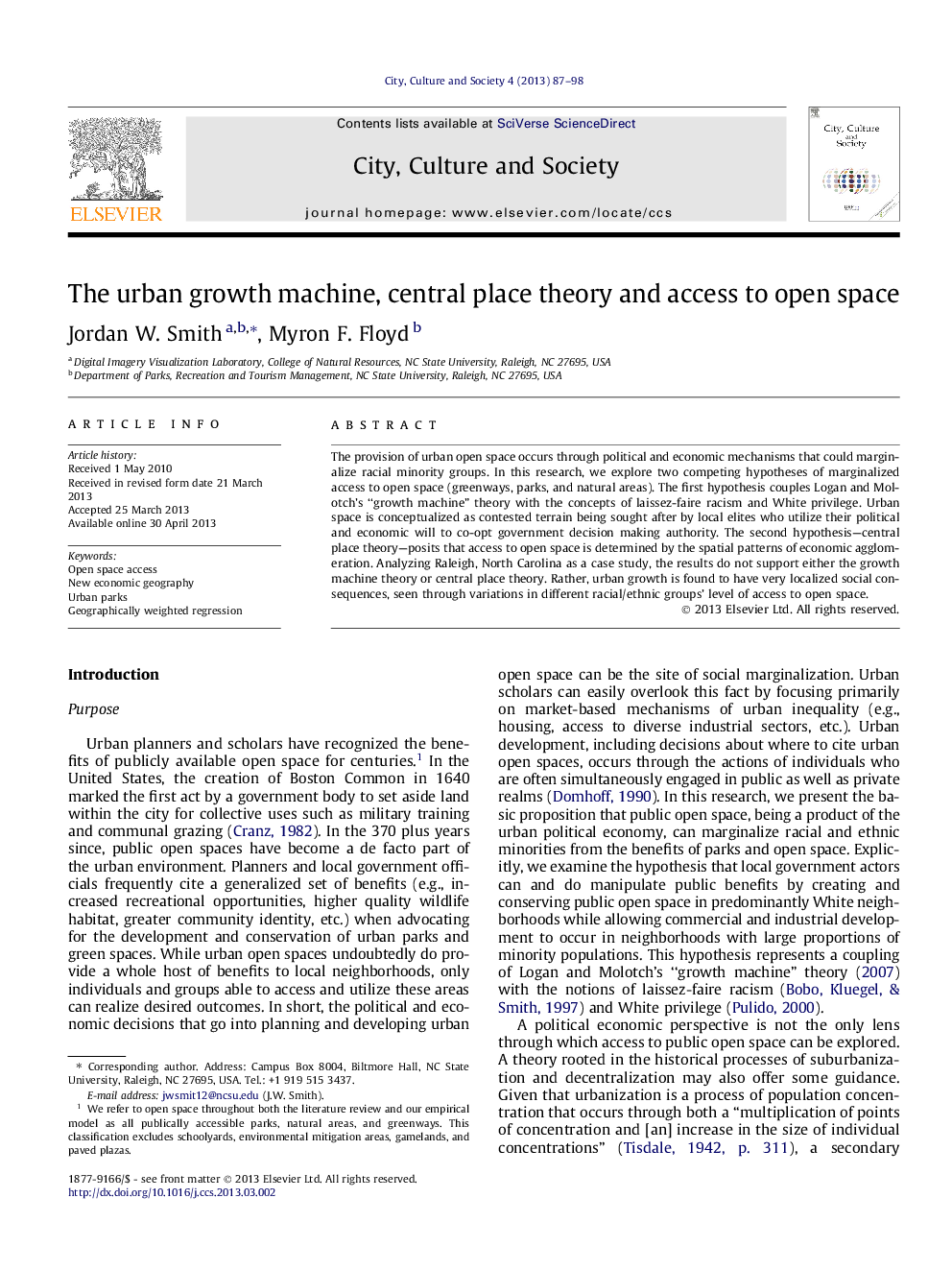| Article ID | Journal | Published Year | Pages | File Type |
|---|---|---|---|---|
| 5048373 | City, Culture and Society | 2013 | 12 Pages |
â¢Racial and ethnic groups' access to greenspace was examined in Raleigh, NC, USA.â¢Results of a Geographically Weighed Regression were compared to global OLS results.â¢We found notable heterogeneity in racial and ethnic groups' access to greenspace.
The provision of urban open space occurs through political and economic mechanisms that could marginalize racial minority groups. In this research, we explore two competing hypotheses of marginalized access to open space (greenways, parks, and natural areas). The first hypothesis couples Logan and Molotch's “growth machine” theory with the concepts of laissez-faire racism and White privilege. Urban space is conceptualized as contested terrain being sought after by local elites who utilize their political and economic will to co-opt government decision making authority. The second hypothesis-central place theory-posits that access to open space is determined by the spatial patterns of economic agglomeration. Analyzing Raleigh, North Carolina as a case study, the results do not support either the growth machine theory or central place theory. Rather, urban growth is found to have very localized social consequences, seen through variations in different racial/ethnic groups' level of access to open space.
